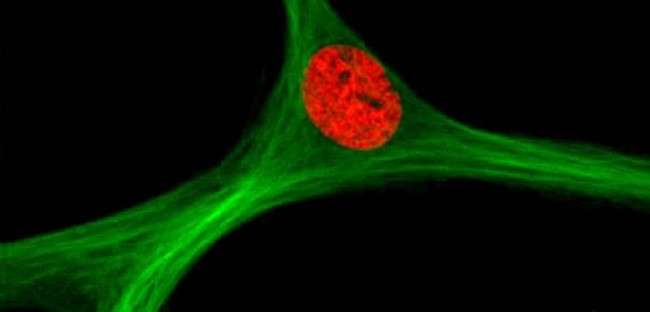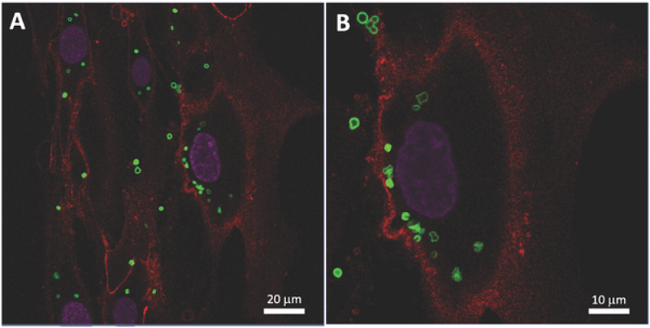Scientists develop magnetic stem cells for gene engineering

Scientists from the Tomsk Polytechnic University's Laboratory of Novel Dosage are developing a technology to control mesenchymal stem cells of patients and allow more effective cancer treatment. To fight cancer, the scientists suggest controlling the patient's own cells with magnets, since native cells won't be rejected by the immune system and can deliver medication directly into the center of the disease.
The development of magnetic cells is jointly carried out by Tomsk Polytechnic University (TPU) and colleagues from Pavlov State Medical University of St. Petersburg and Queen Mary University of London.
Mesenchymal stem cells (MSCs) of about 10 microns are incorporated with magnetically controlled microcapsules containing a drug. External triggering via magnet targets cells to the tumor; there, the microcontainers open and release the encapsulated compound. Thus, drug is precisely delivered, affecting cancer cells and without causing harm to other tissues.
"Mesenchymal stem cells are inherently able to migrate toward tumors. They can also differentiate under control into mesodermal cell types of bone, fat, cartilage, muscle or connective tissue in vivo and in vitro. Therefore, MSCs are very attractive for application in substitute therapy, gene or cell engineering," says one of the development's co-authors Alexander Timin, JRF at the Novel Dosage Laboratory, RASA Center at TPU.
For the first time, the scientists have demonstrated the efficiency of incorporation of magnetic microcapsules by MSCs to functionalize cells and to design magnetically controlled cells and tissue engineering systems.

"It is interesting to note MSCs exhibit a high capability to capture microcapsules without significant toxicity compared to other cell lines described in the literature. As a result of magnetic capsule internalization by MSCs, we have created a new cell engineering platform that is responsive to external magnetic fields to control cell migration. Magnetization of MSCs enables magnetic sorting of cells and forming a cell spheroid out of tens of thousands of MSCs. Also, the obtained results can be further used to create a next-generation cell-modified platform for efficient targeted delivery ex vivo," the authors note.
The scientists have published their results in Advanced Healthcare Materials.
More information: Kirill V. Lepik et al, Mesenchymal Stem Cell Magnetization: Magnetic Multilayer Microcapsule Uptake, Toxicity, Impact on Functional Properties, and Perspectives for Magnetic Delivery, Advanced Healthcare Materials (2016). DOI: 10.1002/adhm.201600843
Journal information: Advanced Healthcare Materials
Provided by Tomsk Polytechnic University





















